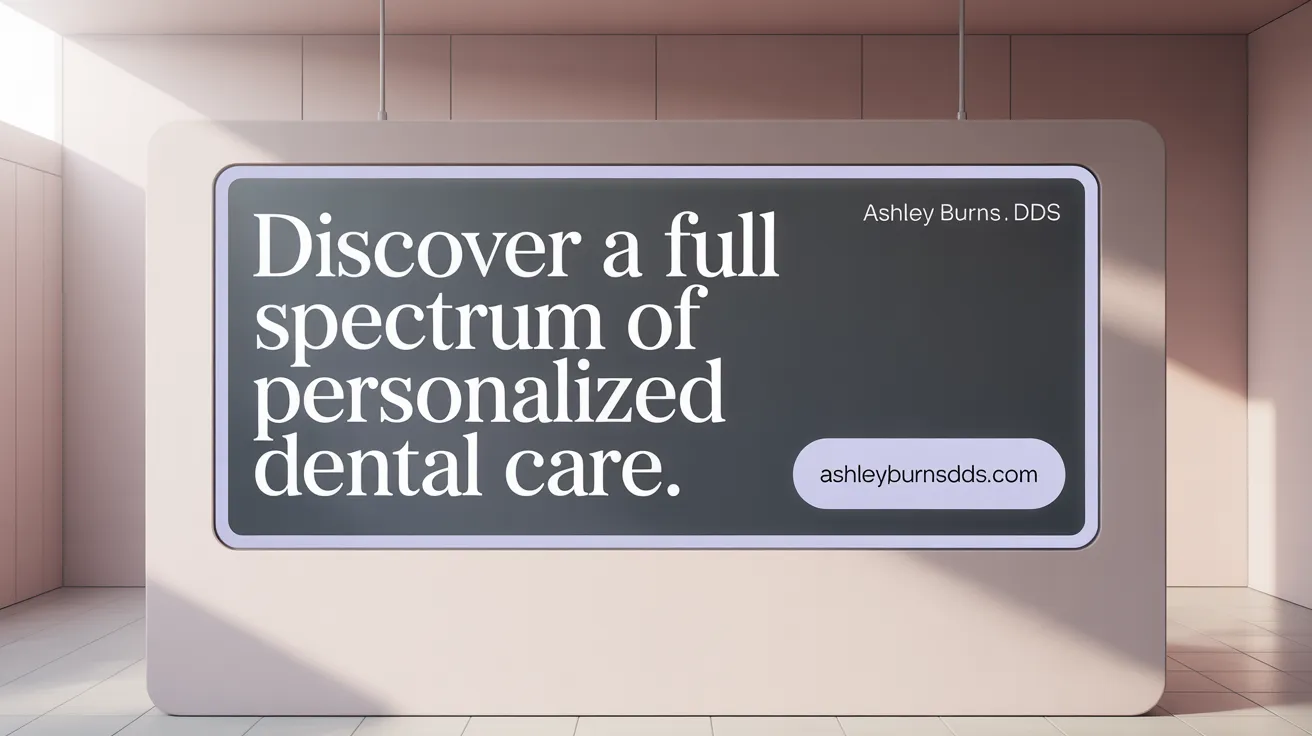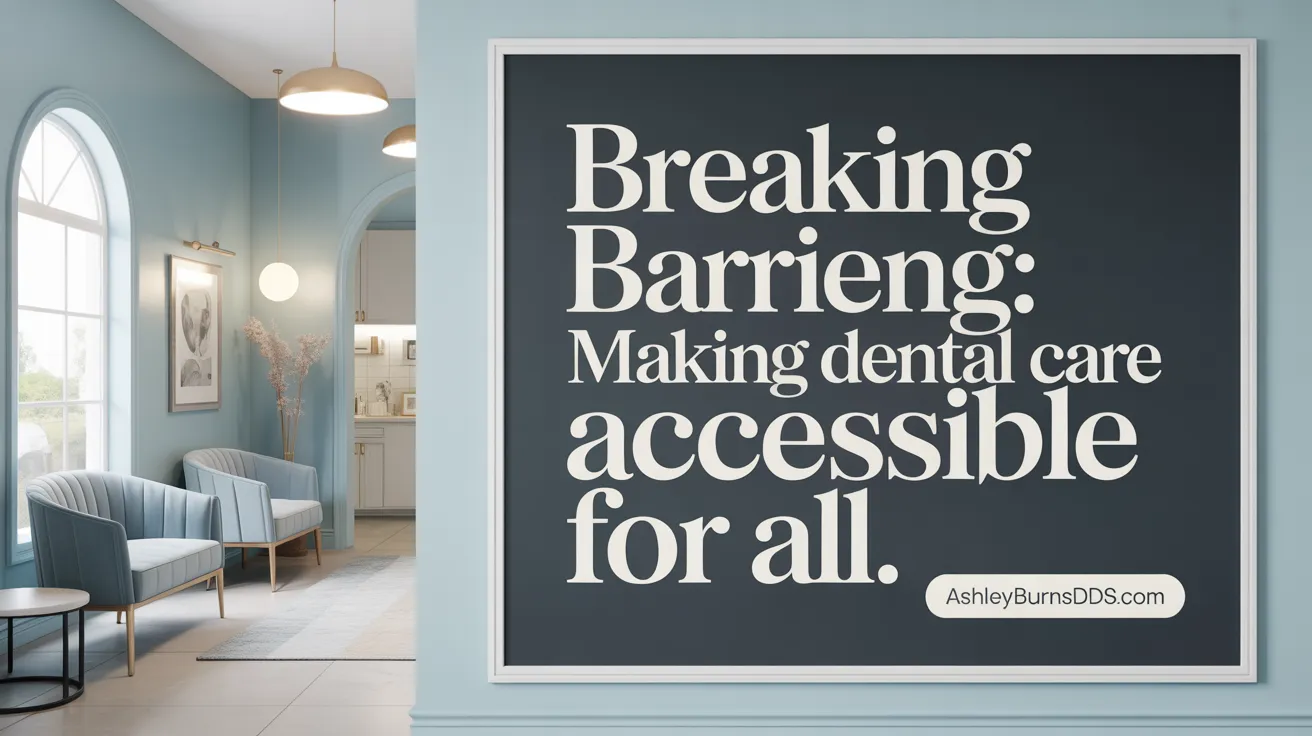Understanding Patient-Centered Care in Modern Dentistry
Definition and Principles of Patient-Centered Care
Patient-centered care in dentistry focuses on providing care that respects and responds to individual patient preferences, needs, and values. It emphasizes tailoring treatments and communication to align with what matters most to the patient. This approach fosters mutual respect, empathy, and collaboration between dental providers and patients, ensuring that clinical decisions are jointly agreed upon.
Importance of Placing the Person at the Center of Dental Care Decisions
At the heart of patient-centered care is the person, not just the dental disease. Considering the patient's social well-being, lifestyle, and personal values plays a crucial role in achieving optimal oral health. Effective communication helps patients understand procedures and express their concerns, building trust and encouraging active participation in their care.
Shift from Traditional Dentistry to Holistic, Health-Promoting Models
Traditional dentistry mostly focused on surgical interventions and treating oral diseases as isolated issues. However, modern models are evolving to prioritize disease prevention and health promotion within the broader context of overall well-being. This approach integrates dental care with general health, emphasizing preventive strategies, minimally invasive treatments, and addressing lifestyle factors to improve long-term outcomes.
Comprehensive Dental Services Tailored to You

What comprehensive dental services does Ashley E. Burns, DDS provide?
Ashley E. Burns, DDS delivers a full spectrum of dental services to address varying patient needs. Her offerings include:
- Preventive Dentistry: Routine cleanings, exams, and screenings to maintain oral health and prevent disease.
- Restorative Treatments: Procedures such as fillings, crowns, and bridges to restore function and repair damaged or decayed teeth.
- Cosmetic Dentistry: Options like teeth whitening, veneers, and Invisalign to enhance smile aesthetics.
Dr. Burns emphasizes Patient-centered dental care and personalized treatment planning. This involves understanding each patient’s dental history, lifestyle, and personal goals. Through clear communication and customized care plans, she empowers patients to actively participate in their oral health journey.
The practice prioritizes creating a comfortable environment where patients feel supported and informed. Advanced techniques and state-of-the-art dental equipment further ensure treatments are effective and as comfortable as possible. This comprehensive, patient-centered approach helps improve and maintain both oral health and confidence for each individual she serves in Midland, Texas.
How Ashley E. Burns, DDS Implements Patient-Centered Care

How does Ashley E. Burns, DDS ensure patient-centered care in her dental practice?
Dr. Ashley Erin Burns prioritizes Patient-centered care in oral health by attentively listening to the unique concerns and preferences of each individual. This tailored approach allows her to develop Personalized dental treatment plans that align with patients' specific needs and health goals.
Patient education is central to her practice. Dr. Burns takes the time to explain procedures, risks, and benefits with clarity and compassion, empowering patients to make well-informed decisions about their oral health.
Creating a comfortable, anxiety-reducing environment is another cornerstone of her care. The friendly, welcoming atmosphere paired with flexible scheduling options helps patients feel relaxed and confident during their visits.
Open dialogue and trust-building are emphasized throughout the patient experience. Dr. Burns encourages questions and feedback, ensuring that patients feel valued and respected at every step.
Together, these practices foster strong relationships and support improved oral health outcomes by making dental care more accessible, transparent, and personalized through open communication in dentistry, building trust in dental care, and patient engagement in treatment.
The Role of Communication and Shared Decision-Making in Patient-Centered Care

Importance of effective communication
Effective communication is a cornerstone of patient-centered care in oral health. It ensures that patients fully understand their oral health status and the treatments recommended, which fosters trust and improves cooperation between patient and provider.
Explaining procedures, risks, and benefits
Dentists must clearly and compassionately explain dental procedures, potential risks, and expected benefits. This transparency helps patients feel informed and reduces uncertainty that can arise before treatment. Such explaining procedures and risks is vital for patient comfort and informed consent.
Addressing dental anxiety and fears
Dental anxiety is a common barrier to care. Open dialogue about fears allows the dental team to create a comfortable, supportive environment. Techniques such as Addressing dental anxiety and sensory-friendly dental environments and personalized reassurance can alleviate patients’ stress.
Empowering patients through knowledge
Providing patients with comprehensive information about their oral health and treatment options empowers them to take an active role in their care. Education enhances understanding and encourages proactive oral health management, consistent with patient-centered care in oral health.
Shared decision-making and treatment plan collaboration
Shared decision-making involves patients in developing their treatment plans. By discussing preferences and priorities, dentists and patients collaborate to select approaches that align with patient values and lifestyles, leading to greater satisfaction and adherence to care. This is a key aspect of shared decision-making in dental treatment.
Overcoming Barriers to Accessible and Equitable Dental Care

What Are Common Challenges in Dental Care Access?
Cost, language differences, and transportation issues are significant barriers that prevent many patients from receiving timely and effective dental care. These challenges are especially pronounced in communities where resources are limited, affecting patients' ability to maintain regular oral health appointments. Learn more about the financial barriers to dental care.
How Can These Barriers Be Reduced?
Implementing strategies that directly target these obstacles is crucial. Reducing financial burdens through affordable care options and insurance support helps patients overcome cost concerns. Additionally, enhancing communication through multilingual support ensures that language does not impede understanding and consent. Effective methods include reducing barriers to dental care and improving health literacy for oral health.
How Important Is Staff Training in Cultural Awareness and Communication?
Staff training plays a vital role in building trust and improving patient experiences. Culturally aware dental teams are better equipped to recognize diverse patient backgrounds and tailor communication effectively. This sensitivity fosters a welcoming environment where patients feel respected and understood. Explore the importance of staff training in cultural awareness and effective communication in dentistry.
What Role Do Mobile Clinics and Teledentistry Play?
Mobile dental clinics bring care directly to underserved areas, mitigating transportation issues that many patients face. Likewise, teledentistry expands access by providing consultations and follow-ups remotely. Both approaches increase reach and convenience, making dental services more accessible to those with mobility or geographic limitations. These innovations are part of reducing barriers to dental care in Midland Texas and include mobile clinics and teledentistry access.
How Can Comfortable, Sensory-Friendly Environments Help?
Creating environments that reduce dental anxiety is essential. Sensory-friendly settings can include calming décor, noise reduction techniques, and patient-centered accommodations that ease fear and discomfort. Such measures encourage patients to engage proactively with their oral health care, improving adherence and trust. This aligns with the concept of creating comfortable dental environments and addressing dental anxiety.
Together, these strategies contribute to a more equitable and patient-centered care in oral health system, improving overall oral health outcomes by addressing the practical and emotional needs of diverse patient populations.
The Future of Dentistry: Integrating Overall Health and Well-being
Shifting Focus from Disease Treatment to Health Promotion
Dentistry is evolving from traditional disease treatment models to a more oral health improvement through person-centered care and prevention-oriented system. This shift emphasizes managing oral health proactively rather than just reacting to dental problems. Such an approach supports better long-term outcomes and improved quality of care.
Considering Lifestyle, Behavioral, and Social Determinants
Modern dental care recognizes that factors beyond the clinical setting—such as individual behaviors, lifestyle choices, and social environments—play a crucial role in oral health. Incorporating these broader determinants helps tailor care to each person's unique circumstances, leading to more effective and meaningful treatment. This is a core principle of patient-centered care that addresses the importance of individual behavior and lifestyle.
Holistic Approaches Linking Oral Health to Overall Wellness
Innovative dental practices adopt holistic dental care models connecting oral health to overall physical, mental, and emotional well-being. For instance, addressing nutrition, sleep quality, and stress management is integral to maintaining healthy teeth and gums. These comprehensive strategies foster overall health improvements alongside dental care.
Benefits of Personalized and Minimally Invasive Care
Personalized dental treatment focuses on the person's specific needs, preferences, and health goals. Treatments often prioritize minimally invasive techniques and use biocompatible materials to reduce discomfort and promote healing. This approach enhances patient comfort, reduces anxiety, and supports better adherence to care plans.
Long-term Patient Relationships and Preventive Education
Building lasting relationships between patient and provider is fundamental to ongoing health success. Encouraging open communication and shared decision-making empowers individuals, fostering trust. Additionally, preventive education plays a vital role in helping patients maintain oral health, reducing the need for extensive treatments over time.
Experience Dental Care That Puts You First
The Benefits of Patient-Centered Dental Care
Patient-centered care in dentistry prioritizes your unique needs, preferences, and values, leading to better treatment outcomes and increased trust. This approach fosters open communication and shared decision-making, allowing you to feel comfortable and actively involved in your oral health journey. It reduces barriers like cost and anxiety, creating a supportive environment for your care.
Personalized, Compassionate Care
Seeking dental care that respects your lifestyle and social well-being ensures treatments align with your goals and promotes overall health. Comprehensive assessments and modern technology enhance care quality and patient comfort, while flexible scheduling and a friendly atmosphere make visits less stressful.
Dr. Ashley E. Burns: Patient-Focused Dentistry in Midland, Texas
Dr. Burns’ practice in Midland embodies the principles of patient-centered care. She offers personalized treatment plans grounded in compassion, advanced diagnostics, and a commitment to building trusting relationships. Her care philosophy emphasizes your voice in every decision, ensuring a positive and empowering dental experience near you.
